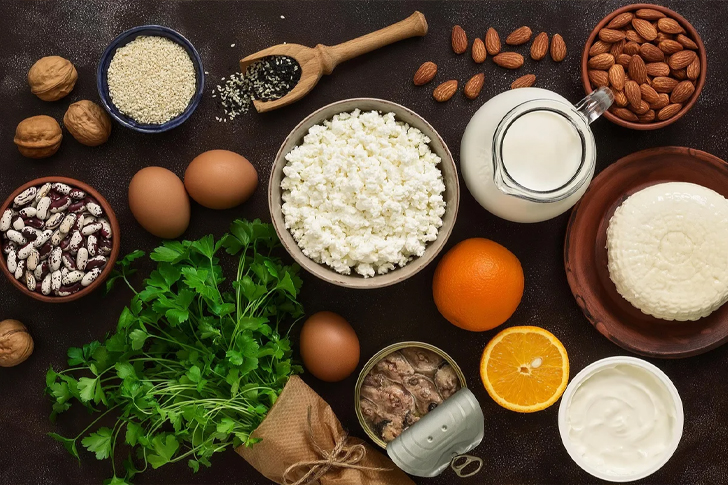Nutritional Choices to Enhance Bone Density
As we age, maintaining bone density becomes increasingly crucial to prevent fractures and bone-related diseases such as osteoporosis. The choices you make in terms of diet can significantly influence your bone health. In this article, we’ll explore various nutritional choices that are known to enhance bone density, backed by scientific evidence and expert recommendations.

Nutrition and Its Impact on Bone Health
Your bones are living structures that require a range of nutrients to preserve their strength and density. Calcium, vitamin D, and protein are the most critical, but other minerals and vitamins also play essential roles. Understanding how these nutrients work can help you make informed dietary decisions to support bone health.
1. Calcium: The Bone Builder
Calcium is the most abundant mineral in the body and vital for bone health. Adults typically require about 1,000 milligrams of calcium per day, which increases to 1,200 milligrams per day for women over 50 and men over 70. Dairy products like milk, cheese, and yogurt are rich in calcium. For those who are lactose intolerant or vegan, fortified plant milks and juices, leafy green vegetables, and tofu are excellent sources. Almonds and chia seeds are also good options for boosting calcium intake.
2. Vitamin D: The Calcium Helper
Calcium’s partner in crime, vitamin D, is essential for calcium absorption. Without sufficient vitamin D, your body cannot absorb calcium, impacting bone density. The recommended daily intake is around 600-800 IU, but some studies suggest that a higher daily intake of 1,000 to 2,000 IU may be more effective at maintaining optimum health. Vitamin D is unique because it can be synthesized by your body when exposed to sunlight. However, food sources like fatty fish, fortified milk, and eggs can also help boost your vitamin D levels.
3. Protein: More Than Just Muscle
Protein makes up about 50% of bone volume and a third of its mass. A diet low in protein has been linked to poor bone health and age-related bone loss. Adults should aim to consume 0.8 grams of protein per kilogram of body weight per day. Sources of high-quality protein include lean meat, poultry, fish, dairy products, legumes, and nuts. Vegetarians and vegans should ensure they are consuming varied protein sources to meet their needs.
4. Magnesium: Critical yet Overlooked
Magnesium plays a pivotal role in converting vitamin D into its active form, which helps in calcium absorption. Adults need 400-420 mg of magnesium daily. Foods rich in magnesium include leafy green vegetables, whole grains, nuts, and seeds. Considering the standard American diet, which often lacks these essential foods, magnesium supplementation might be beneficial for some individuals.
5. Potassium and Vitamin K
Potassium reduces the loss of calcium in urine and is found in fruits and vegetables like bananas, potatoes, and oranges. Vitamin K supports bone health by improving calcium balance and promoting bone formation. Leafy greens such as kale and spinach are excellent sources of vitamin K. A daily intake of about 90-120 micrograms of vitamin K is recommended.
6. Lifestyle and Dietary Synergy
While focusing on these nutrients, it’s also important to consider overall dietary patterns. A Mediterranean diet, which is high in fruits, vegetables, nuts, seeds, whole grains, and olive oil, has been shown to be beneficial for bone health. Conversely, consuming excessive amounts of salt, caffeine, and alcohol can have negative effects on bone density.
7. Exercise as a Complement to Diet
In combination with a nutritious diet, regular physical activity is crucial for maintaining healthy bones. Weight-bearing exercises, such as walking, jogging, and strength training, can help build and maintain bone density. Aim for at least 150 minutes of moderate-intensity exercise per week.
In conclusion, optimizing your bone health through nutritional choices involves a balanced intake of key nutrients such as calcium, vitamin D, protein, magnesium, potassium, and vitamin K. By incorporating a variety of these nutrients into your daily diet and maintaining an active lifestyle, you can significantly boost your bone density and overall health.







Recent Comments